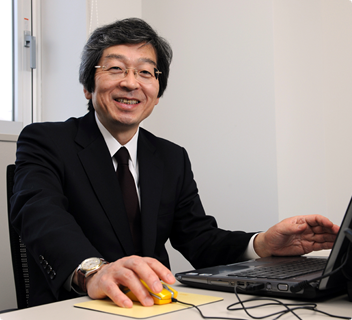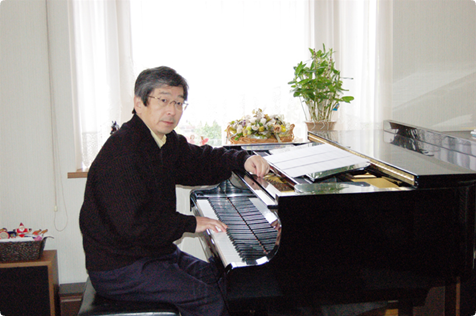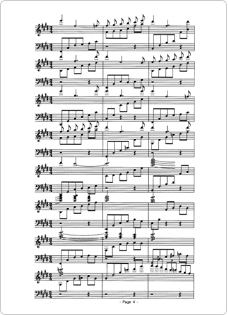Needs and seeds are the mighty duo vital for research.
Coping with the challenge of mathematical formulae.
What is it that you keep in mind when you command operations as a general manager of Research & Development Headquarters, Core Technology Center?

In R&D activities at the Core Technology Center, we employ dual basic methods: one is needs-oriented support for today’s business, and the other is seeds-oriented future technology development. It is important to start new themes of study at any time, but just as critical to combine and optimize many technologies already existing today. Then, most essential of all is to achieve results in today’s market with the most recent R&D developments to support current business. How can you rely on your R&D teams for the future 10 years ahead, if they fail to support your business today?
How do you train young engineers or designers?
First of all, I must discover their areas of interest and their immediate concerns. Then, I may need to give engineers my detailed comments, or sometimes, I’ll praise their efforts. I am always careful not to be overly candid or critical. What’s important in a laboratory is not necessarily to raise the lower or average level of standards, but rather to elevate the top levels to even higher positions. I think this encourages engineers to have stronger motives to transcend barriers, which in turn helps advance the overall level of standards at laboratories.
What’s the true genius necessary to be a genuine researcher?
Engineers should nurture two talents. One is to draw from their own dream what they really want to achieve through their R&D work. The second is to maintain efforts to persevere with theories that enable them to fulfill the goal. What worries me recently is that young engineers are lacking in their basic knowledge and powers of mathematics and physics, which should be the common foundation of all technologies. It’s vital that engineers acquire these basics at high schools and colleges. Otherwise, there’s no chance that they’ll become successful researchers.
What is it that you bear in mind to keep yourself growing?
Here’s a phrase I take to heart, “It’s time to retire when you feel you can’t cope with the challenge of mathematical formulae.” This is a phrase that Dr. Tsuruta, then vice president of Nikon Corporation, once gave me. I am glad to say I am as active as ever up at the front of the field in this sense.
This Nikon Chair could foster the kind of top-level engineers and designers that the optical engineering industries in Japan are really looking for.
I hope so. I hear that the reputation of the Nikon Chair of Optical Engineering among students is becoming stronger year by year. I counted 23 postgraduate students at the end of the semester when they submitted their last reports. I worried at times that more PCs were needed for leasing to students. Our activities are at the moment limited to those at the University of Tokyo. But I dream that a day will come when similar activities are widely available throughout Japan, so that everyone who wants to learn about optical engineering can take classes at any college or university. This may be the best way to ensure that the optical engineering industry of Japan can grow stronger than ever before.
What careers do your postgraduate students choose after they finish your class?
I am happy to inform you that the number of students that join companies in the optical industry is increasing.
It’s encouraging to hear that. It means that those who graduated from your class may well become active at the forefront of worldwide business as leaders in the Japanese optical industry.
It would give me great pleasure to hear such news of our graduates.
Closing the interview, may I ask your current interests for your own pleasure as a man of hobbies?
Here’s another hobby, not particularly a recent one, but rather a long-time interest. I compose music, besides writing. The Japanese website of the Nikon Chair of Optical Engineering created a link so that readers can listen to my music. (The access link, Music of the Month, is also available below on this page for English readers.) I am just an amateur composer, though. Today, the principal hobby I focus on is golf. I am not skillful at all yet, being a beginner. Attending a golf school near my house, I learn new things every week. Sorry to say, however, but I seem to return to being a genuine beginner again the next week. This is quite an unusual experience for a laboratory researcher. As a refreshing influence, my hobbies do contribute to bringing good results back in the laboratory.

Hiroshi Ohki composing music

Music score Sakura Fubuki or Cherry Blossoms Blown in Winds, by Hiroshi Ohki
